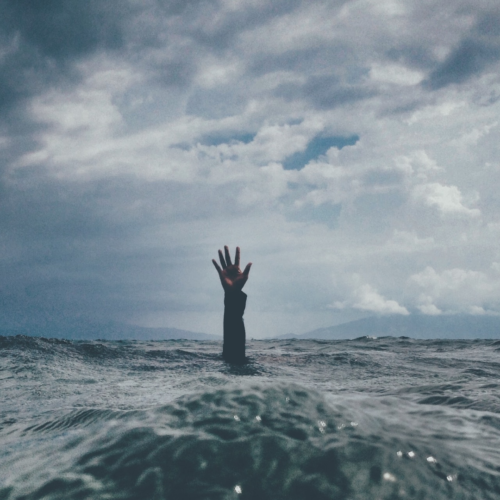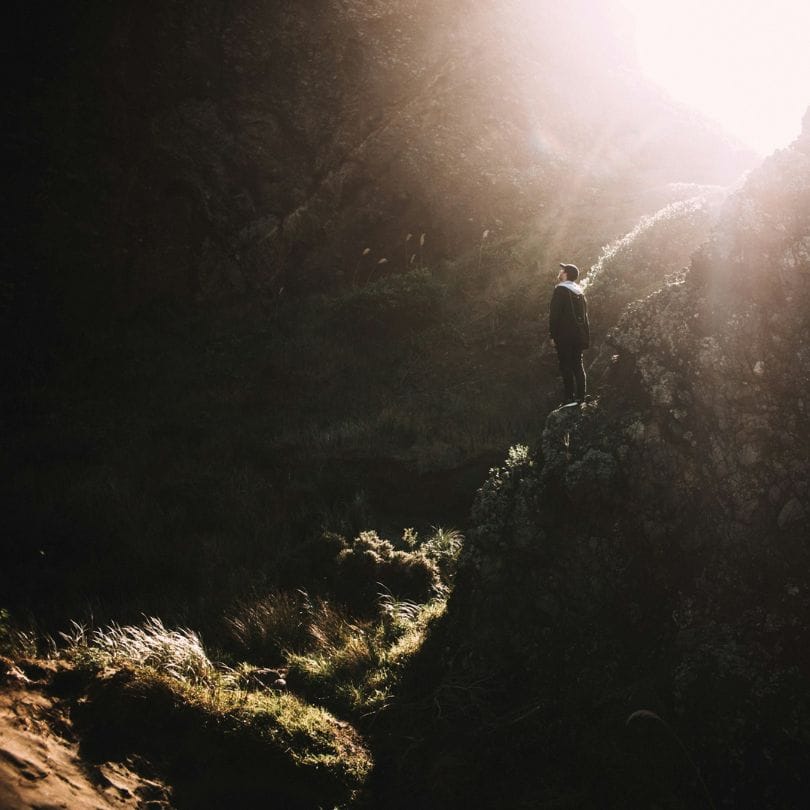Nigeria, we’ve got a Sexuality Problem!
by Subomi Plumptre

[Download a PDF of this article]
Nigerians are obsessed with sex. We just pretend not to be.
In this article, I will talk about porn – Internet porn to be precise (and other ancillary issues). But I do so with a caveat – I do not intend to debate the morality of what adults do on their devices, in their spare time. However, as a student of culture and behavioural development, I am concerned about vulnerable groups; particularly children and young teenagers. My article will focus on these two groups and tangentially, on women.
In 2015, I was privileged to work on two projects. The first was Jack & Jil Therapy – a free telephone based platform for those needing help for critical sexuality & life issues. The second project was #SaveMirabel, a movement to raise urgent funds for Lagos’ only rape crisis centre – The Mirabel Centre. As a result of my involvement with these two initiatives, I was exposed to a treasure trove of information about sexuality issues in Nigeria. I will share some of them in this article.
In 2015, the popularity of Nigerian Google searches for porn (relative to other searches) on a scale of 0 to 100 was above 80. (Google ranks as 100 any item that constitutes 10% or more of all searches in a country.) The number of average monthly searches by volume was 135,000 and the States with the greatest popularity for porn searches (from high to low) were: Enugu, Oyo, Ogun, Rivers, Lagos, Abia and Cross River. The relative popularity of rape porn videos was also above 80, with Lagos State leading the charge and in 2014, Nigeria ranked third globally for the most Google searches for Gay Porn. (We were ranked second in 2013.)
Since 2009, porn search popularity has always risen above 70 every December, save one. In December 2014 and 2015, Nigeria outstripped America in the popularity of searches for porn – a nation twice our size and with deeper Internet penetration I might add.
A popular porn site is among the top 50 sites visited by Nigerians according to Alexa.com. It is more popular than the leading jobs and news sites.
From the foregoing, we can surmise that Nigerians have a robust interest in Internet porn. This is not just a Nigerian phenomenon. According to Google Facts, porn sites get more visitors globally each month than Netflix, Amazon and Twitter combined. According to Pornhub, the world’s leading online porn aggregator, the largest consumed categories of porn among millennials are cosplay (the practice of dressing up as a character from a film, book, or video game) and hentai (a subgenre of the Japanese genres of manga and anime). In other words, there’s escape from reality into the world of fantasy. Gaming and virtual reality are now influencing the type of porn millennials consume. Millennials comprise 70% of Nigeria’s population but we have no data on the type of porn they are consuming.
Some may argue that watching porn is part of the normal sexual exploration and growth of a young person and should be encouraged. But let’s consider commentary from leading neurologists:
An article by Frank Powell describes the key highlights of a TED talk by Gary Wilson, a retired neurologist. The talk was titled “The Great Porn Experiment.” In the video, Wilson details the devastating effects of long term consumption of porn on the developing brain including, Attention Deficit Disorder (ADD), Obsessive Compulsive Disorder (OCD), social anxiety and depression. Porn also numbs the ability to feel real life intimacy. The longer a brain is exposed to porn, the more hyperactive it becomes at the sight of porn. In other words, the more you view porn, the more your brain desires it. It is a vicious cycle that ultimately erodes your willpower and self-control.
A study published in 2014 by Cambridge University tracked the behaviours of compulsive porn users: over 50% of subjects (average age 25) had difficulty achieving erection with real partners yet could do so with porn.
Here’s more from Gary Wilson: Porn is particularly appealing because of the Coolidge Effect, a phenomenon seen in mammalian species where males (and to a lesser extent females) exhibit renewed sexual interest if introduced to new receptive sexual partners. This is because of the novelty factor. With internet porn, you can experience more variety in 10 minutes of clicking than you may experience in an entire year of real life, hence, its appeal. According to Gary Wilson, consistent consumption of porn rewires the brain of developing teenagers, leading to desensitisation, a drop in libido & willpower and eventually erectile dysfunction in real life scenarios. Intriguingly, research shows that older men who did not grow up with high speed Internet recovered faster than younger men from porn related erectile dysfunction because their sexual preferences were set in their brains long before they got hooked on Internet porn.
Although there are exceptions to every rule; the exception generally proves and tests the presence of a rule. Porn is especially devastating to a child or teenager’s brain and sexual development.
It is interesting to note that those in the tobacco business speak about the principle of generational addiction. Because nicotine is addictive, if you can get people smoking when they’re young, you’re guaranteed a significant number of life-long customers. The same principle applies to porn. In Porn On The Brain, a UK Channel 4 documentary, a neurologist found that the brains of compulsive porn users were altered similarly to those suffering from other addictions.
Now, back to Nigeria.
Nigeria currently enjoys about 50% internet penetration. This means almost 100 million people enjoy internet access; a significant portion of them being teenagers. (For perspective, the population of connected Nigerians is greater than that of the entire population of the United Kingdom.) In 2014, A.T. Kearney, the global management consulting firm revealed the countries with the most devoted Internet users. Nigeria was number 2. Nigerians do not just have access to the Internet; they love to use it. Nigeria’s Ministry Communications projects that the country will have 76% broadband penetration by 2020. Are we ready for the increased access to Internet porn that this will create?
These are my main concerns: Will a nation without credible and well-resourced policing structures be able to protect minors and the vulnerable from online solicitation or the expressions of sexual deviants and psychopaths? Who ensures that minors with little understanding of or a frame of reference for sexuality are protected from early access to sexual material? Who tells them that what they are seeing isn’t real? Who manages their expectations of real life intimacy? Who deals with the fall-out of a child whose first experience with sex may be cruelty and domination? Where are the professionals required to assist a growing youth population grappling with sexuality issues? Who treats the addicted?
According to the Nigerian National Association of Clinical Psychologists (NACP), there are only 42 Clinical Psychologists and 180 Psychiatrists registered with the association. Taken together, this is a ratio of 1 mental health professional to 766,000 Nigerian citizens. Dr. David Igbokwe, a Nigerian Clinical Psychologist and Psychotherapist posits that if we take into consideration the broader ecosystem of mental health professionals – Occupational Therapists, Social Workers, Psychotherapists, Clinical Psychologists, Psychiatrists and Trained Counsellors – including those in private practice, Nigeria may have up to 1,200 mental health professionals. This is a paltry number if Internet porn addiction were to take firm root in Nigeria. Already, in 6 months of existence of the Jack & Jil Therapy platform, addiction to porn & masturbation has been the most recurrent issue.
In a society where the family unit is increasingly becoming fractured and where parental oversight is not what it used to be, we cannot afford to add a layer of sexuality issues to our national troubles. We simply do not have the structures in place to deal with it. Presently, Nigeria has little or no restrictions to internet access. This includes an absence of restrictions to child pornography and lack of protection for children and teenagers who may be exploited or behaviourally programmed. Teenagers already have easy access to real life sexual liaisons on the Internet. From the Lagos Sex Network to Twitter After Dark to Creamy Escorts, opportunities abound if you’re looking for a sexual partner via the Internet. Snapchat has also introduced Snapcash, making it easy to pay for shared nudes.
I have a deeper concern that there may be a link between increased access to violent sexual content (e.g. Nigeria’s growing interest in rape videos) and increased sexual violence. To be fair, there is no detailed study on the correlation between the two even in developed nations, however I came across an interesting comment in the article, A User’s Manual by The Economist. In the article, Meg Kaplan, a Psychologist at Columbia University who treats those convicted of sex offences, thinks it likely that some sexual tastes are formed around puberty. That means ill-timed exposure to unpleasant or bizarre material could cause a lifelong problem. Various researchers have found that heavy users of porn are more likely to have become sexually active early, to regard sex as a mere physiological function, like eating or drinking, and to have tried to coerce others into sex. But no one knows which came first: the porn or the problem.
According to UNICEF, “one out of every four girls and one out of every ten boys in Nigeria suffers sexual violence.” In 2015, The Mirabel Centre reported that 592 of their 845 patients were under the age of 18. This is 70% of the total number! In a 2014 spot survey of 1,000 random Nigerians conducted by NOI Polls [on behalf of Stand to End Rape (STER)], 49% of those surveyed stated they knew a child rape victim. But how much of sexual violence in Nigeria can be attributed to our cultural views of sex and how much can we begin to attribute to early access to sexual content on devices? We do not have enough data to say for sure.
In the UK’s Channel 4 documentary referenced earlier on, some sexual therapists speculate that porn addiction leads to false expectations in real life. They posit that the rise in popularity of requests for anal and gagging during sex may be linked to their popularity in porn. To be clear, consensual sexual preferences are not the issue and are beyond the scope of my article, however, the fact that the sexual therapist in the documentary reported that some women were coerced interests me.
In many countries where porn can be readily accessed by teenagers, there are legal, social, medical and spiritual structures in place to protect them and to counterbalance the effects. Nigeria does not yet have those structures; yet, our porn consumption rates are rising. To this end, Nigeria must consider a number of proactive actions as a matter of priority.
First, I am not an advocate for banning Internet content wholesale. Knee jerk reactions do not work. In developed countries, it has been found that sexual filters still let blogs and social networks through, so platforms like Snapchat and Tumblr can still distribute porn to teenagers. Instead, I recommend the following specific solutions:
1. Encourage structured conversations about sex among children and teenagers online, in homes, in schools and in places of worship. If porn is providing one perspective about sex, healthy alternative perspectives must also be provided.
2. Provide factual and age-relevant material and information about sex. If a teenager wants to know about anal sex, there should be safe places to find the information outside of porn. If he/she asks a parent or religious leader, the request should not elicit a blush or a blank stare. If young people don’t know what is real, how can they then tell what is fake and properly contextualise it? Authority figures and counsellors must be up-to-date with popular culture and lingo. According to Kelly Wallace, CNN’s digital correspondent and editor-at-large covering family, career and life, there are many slangs and abbreviations that are used by teens while chatting about sexuality. Conversations with teenagers may require an understanding of these slangs. Here are some of the more popular ones:
IWSN – I want sex now
GNOC – Get naked on camera
NIFOC – Naked in front of computer
PIR – Parent in room
CU46 – See you for sex
53X – Sex
9 – Parent watching
99 – Parent gone
1174′ – Party meeting place
Broken – Hungover from alcohol
420 – Marijuana
POS – Parent over shoulder
SUGARPIC – Suggestive or erotic photo
KOTL – Kiss on the lips
(L)MIRL – Let’s meet in real life
PRON – Porn
TDTM – Talk dirty to me
8 – Oral sex
CD9 – Parents around/Code 9
IPN – I’m posting naked
LH6 – Let’s have sex
WTTP – Want to trade pictures?
DOC – Drug of choice
TWD – Texting while driving
GYPO – Get your pants off
KPC– Keeping parents clueless
3. Institute policies and enforce strict penalties for the distribution of Internet porn featuring minors and the distribution of porn to minors. A cyber task force should be set up to monitor same.
4. Commission research to regularly measure consumption of Internet porn by children and teenagers in Nigeria and their resultant attitudes towards sex and sexuality. The results of such studies will influence the design of programmes to help them.
5. Finally, keep conversations about sexuality in Nigeria on the front burner to help promote positive ideologies about sex.
I have chosen to begin the conversation on this platform. What will you do?
(PS: If you think you should be talking to someone about your porn consumption, suspected addiction to porn/masturbation or if you know someone who needs help, please go to: www.jacknjillive.com/therapy.)
[Download a PDF of this article]









